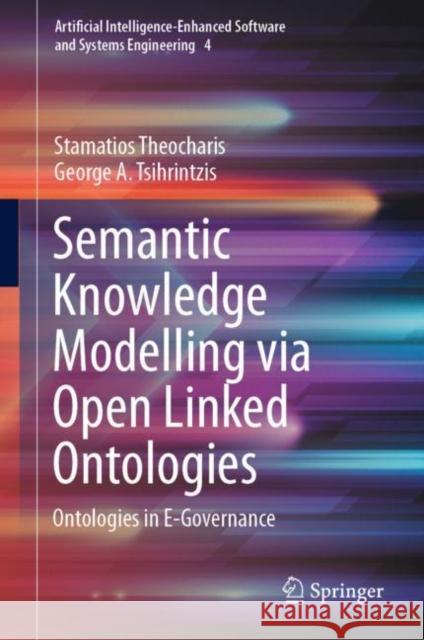Semantic Knowledge Modelling Via Open Linked Ontologies: Ontologies in E-Governance » książka
Semantic Knowledge Modelling Via Open Linked Ontologies: Ontologies in E-Governance
ISBN-13: 9783031205842 / Angielski / Twarda / 2023 / 372 str.
Semantic Knowledge Modelling Via Open Linked Ontologies: Ontologies in E-Governance
ISBN-13: 9783031205842 / Angielski / Twarda / 2023 / 372 str.
(netto: 616,28 VAT: 5%)
Najniższa cena z 30 dni: 578,30
ok. 16-18 dni roboczych.
Darmowa dostawa!
Evolving technological advances inArtificial Intelligence-empowered Softwarepresent significant potential to leade-Governmenttowards more collective efforts, exchange of experiences on best practices both at national and international levels and dissemination of secluded administrative knowledge. In this book, novelsemantic web-basedandlinked open data-basedapproaches are developed for the modelling and management of the huge volume of administrative data and the procedures followed by public sector bodies and for the production and management of relevant administrative knowledge.The book consists of eight chapters, each of which includes relevant bibliographic references for deeper probing. Appendices complement this work with sections of configuration files of the applications developed and used.Professors, researchers, scientists, engineers and students in artificial intelligence, e-government and other computer science-related disciplines are expected to benefit greatly from it, along with non-specialist readers from other disciplines who are interested in getting versed in the recent developments in e-government.
Evolving technological advances in Artificial Intelligence-empowered Software present significant potential to lead e-Government towards more collective efforts, exchange of experiences on best practices both at national and international levels and dissemination of secluded administrative knowledge. In this book, novel semantic web-based and linked open data-based approaches are developed for the modelling and management of the huge volume of administrative data and the procedures followed by public sector bodies and for the production and management of relevant administrative knowledge.
The book consists of eight chapters, each of which includes relevant bibliographic references for deeper probing. Appendices complement this work with sections of configuration files of the applications developed and used.Professors, researchers, scientists, engineers and students in artificial intelligence, e-government and other computer science-related disciplines are expected to benefit greatly from it, along with non-specialist readers from other disciplines who are interested in getting versed in the recent developments in e-government.











